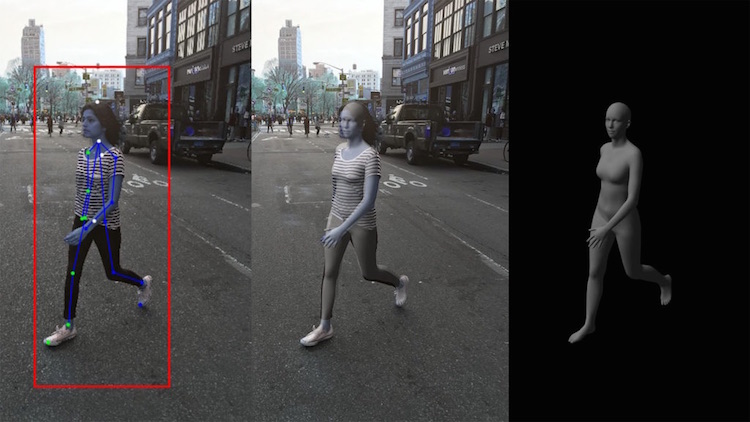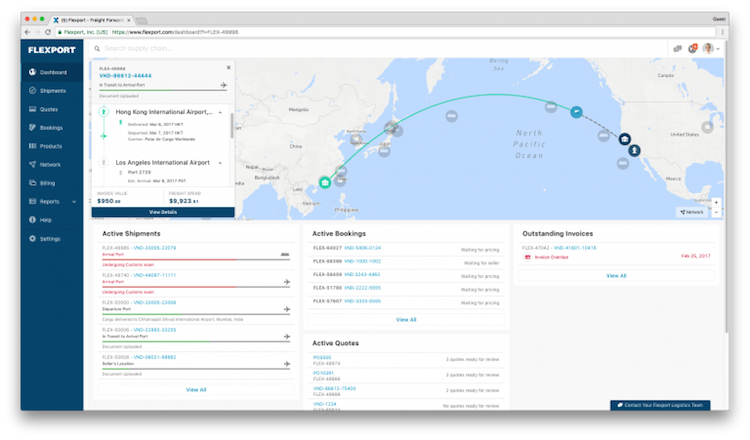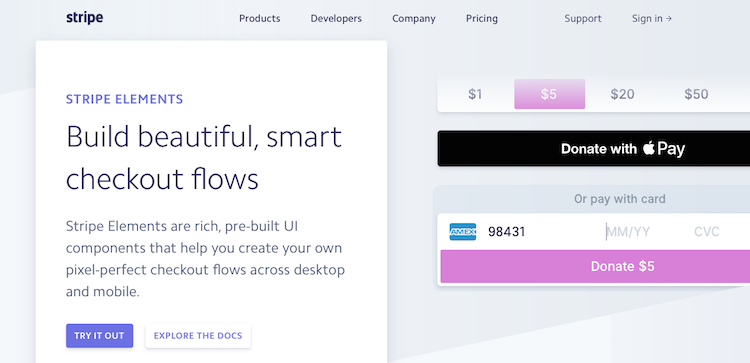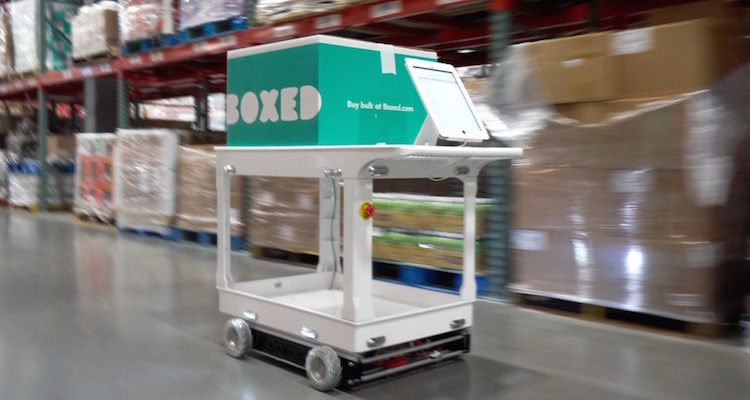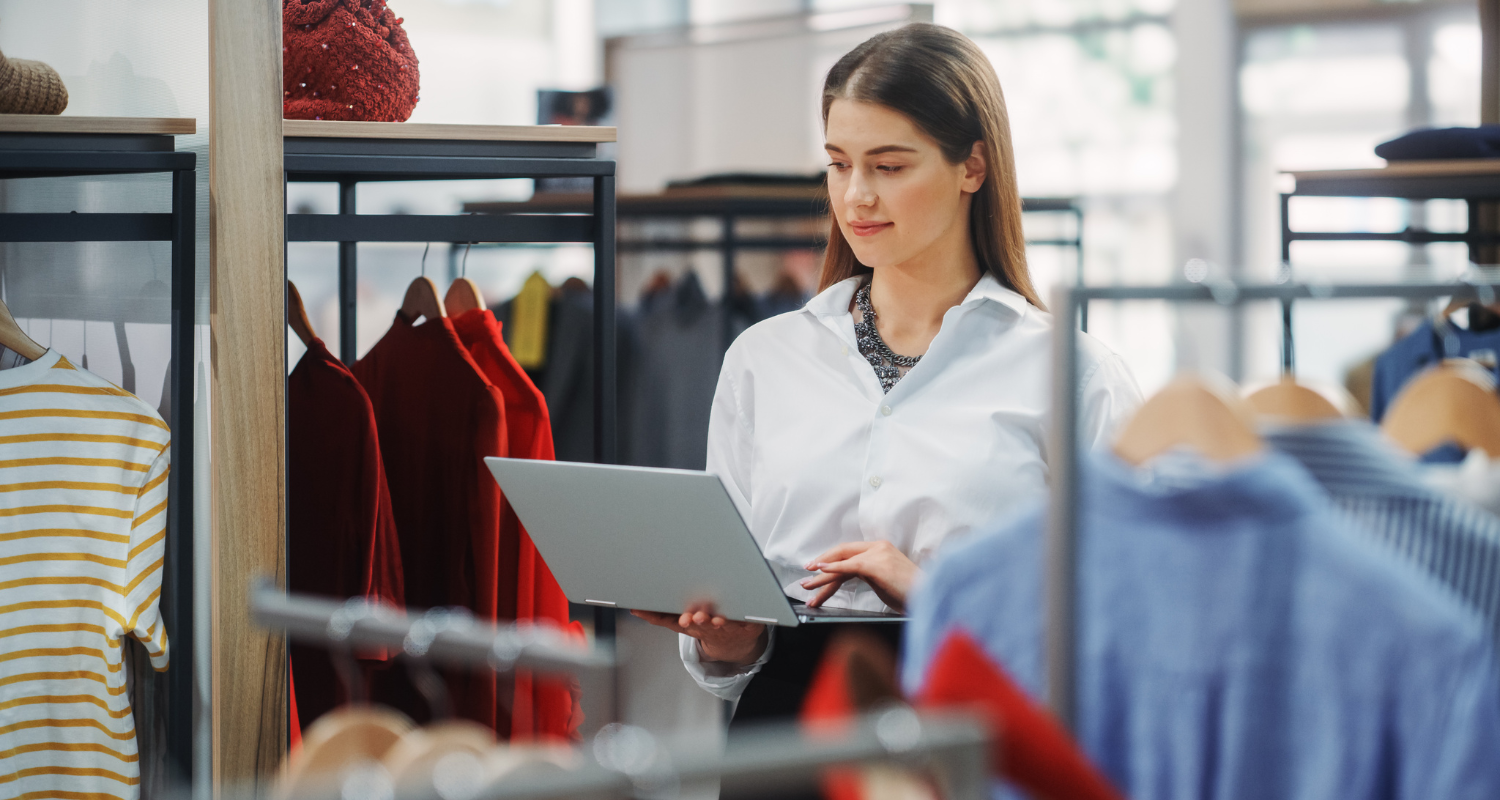The world of eCommerce is growing faster and more integrated, connecting the physical world through ever better logistics and the digital with algorithms that help us buy ever easier. eCommerce volume is growing, too, allowing the major marketplaces and platforms to invest in integrations, daring technology, and new products.
As eCommerce firms are gearing up for BFCM and the holiday season, they’re expecting numbers to be better than last year. Let’s take a look at what the movers and shakers of online retail are up to in preparation for the winter season kick-off.
Source: Shopify
Shopify and BigCommerce Stores Can Now Sell on Instagram
Shopify had been testing an integration with Instagram throughout 2017 and has finally rolled it out to a select few thousand stores. Instagram is already widely used to drive traffic to eStores built with the platform, but now that social media buying traffic can be converted much easier.
With this new integration, sellers are able to tag products they want to sell on the social network and allow users to complete the purchase directly in the Instagram app. By significantly shortening the buying process, store operators will be able to take even better advantage of social proof and impulsive sales.
It will take some getting used to, of course, as brands find the best way to implement and consumers get comfortable with the new model.But after this initial limited rollout, Shopify will eventually open the integrations to all its users, which includes over 500,000 stores built with the platform.
Another big player, BigCommerce, announced the same sort of integration with Instagram, allowing stores built with its platform to sell directly on the app. Now, brands that have built a following on the social network can improve their conversion by selling products directly on user feeds.
In the meantime, Amazon is making steps to take augmented reality in fashion retail to the next level.
Source: Cartoon Brew
Amazon to Open AI Research Center in Germany
Amazon announced that it will open an AI research center in Germany to work on improving the user experience. The goal is to dig deeper into visual data in order to improve the consumer buying experience. The research center will be built in collaboration with the Max Planck Institute, and it will be close to the Institute’s campus. This will be the 4th Amazon research center in Germany.
Amazon has also acquired Body Labs, a company that builds 3D body models used to augment digital objects like clothes, accessories, and gaming avatars. Body Labs also develops technology to predict the body shape and size of consumers using a single image. This technology will fit right in with Amazon’s fashion apparel arm.
If Body Labs can create a workable and accurate body model for each of Amazon’s customers and let them try clothes digitally, it will give the retailer a serious competitive advantage. The move is right in line with Amazon’s launch of their private label fashion line that aims to provide better fitting garments with an affordable price tag.
Amazon is also scouting major US cities for the perfect location for its new headquarters, dubbed HQ2. And major cities’ authorities are trying to tempt the giant retailer with significant tax incentives and complementing infrastructural developments.
While Amazon is expanding its empire, eBay launched a service that authenticates and sells designer bags for you.
Source: eBay
eBay Authentication
eBay launched eBay Authentication, allowing sellers of second-hand luxury bags and wallets to have them authenticated. You simply send in your luxury bag or wallet using a free shipping label to an expert who will take care of the rest. The authenticator will take photos, list, and ship your bag to your buyer, and you will receive 80% of the take.
Handbags are one of the most popular items on eBay, but customers are often reluctant to buy luxury brand bags because of the fear of knock-offs and forgeries. While the new authentication service is optional, it allows sellers to use it for items with a minimum price of $500 without scaring away scam-wary buyers. eBay says the service will soon expand to other high-price product groups, including jewelry and watches.
From the reselling of luxury goods, we move to the world of global freight and how Flexport is trying to optimize it.
Source: Flexport
Flexport is Reinventing Global Shipping
Flexport makes hauling goods across the globe, from manufacturers in Asia to retailers in the US, simpler. The company is moving about 7,000 containers per month at an average price of $2,000 dollars. And it has recently raised $110 million in a Series C round, which values the company at $910 million.
Flexport wants to make logistics and financing easier for its customers. It already boasts a very comprehensive system, and 1,800 businesses trust it to move their products from the manufacturer to their intended market.
Flexport is planning a scheme in which it will give loans to retailers to pay manufacturers and then collect them when the products are sold. They plan to offer trade-financing backed by leading banks, including Wells Fargo, that they have a good relationship with. The firm plans to use its shipping data to calculate and minimize the risk of shipping, advance the money to its customers, and then collect a fee when repaid.
On the subject of money, Stripe’s new payment optimization toolkit, Elements, aims to make money flow more smoothly at checkout.
Source: Stripe
Elements – Stripe’s New Checkout Optimization Toolkit
Stripe is taking strides to simplify the checkout process so its customers can close more transactions. It has launched its free toolkit called Elements that allows its users to create custom checkout experiences. As Amazon’s 1-click buying and mobile abandonment statistics can testify, simpler is better, and Stripe is lending a hand to its customers by doing just that – simplifying.
Companies can use Elements to add different pre-built UI features to their checkout process that respond beautifully to both desktop and mobile. You can add autofill fields, localized payment methods, and real-time validation for an error-free and smooth transaction.
Elements is built to tackle the high cart abandonment rates eCommerce is facing. Cart abandonment is usually related to too complicated of a checkout or the lack of convenient payment methods. Stripe has conducted extensive research on this topic and found that even leading eCommerce operators have imperfect checkout pages. Stripe wants to be the solution.
While Stripe is optimizing the digital world, Boxed is busy making smart carts for its warehouses.
Source: Digital Commerce 360
Boxed Invests in Self Driving Warehouse Vehicles
Boxed Wholesale has been investing in logistics automation and boosting its fulfillment capabilities for a while now, and they have just unveiled their self-driving vehicles that navigate their warehouses to pick up products for incoming orders.
Founded in 2013, Boxed carries only 1,600 products in the grocery and house products niche. It specializes in wholesale, similar to Costco, but does not include a membership fee. It ships its products for free on orders over $49 and usually delivers within two days.
The new self-driving vehicles are designed to quickly travel to an item’s location. Then, a worker picks the item, marks it as picked, and drops into the cart. The cart then takes it to a packing station. Boxed says the vehicles increase picks per hour by an astonishing 80%. Yet, the carts were developed by two in-house engineers in just 3 months.
The company is currently manufacturing the carts and plans to implement 30-40 of them its Dallas facility.
From cutting-edge warehouses, we go the world of augmented reality and Topology Eyewear’s new app that measures your face for a perfect eyeglass fit.
Source: Topology
Topology Eyewear’s Augmented Reality App
Topology Eyewear uses an app that 3D scans your face and then uses augmented reality to overlay different styles of glasses until you pick the ones that you like. It can do all of this from a simple selfie video of your face, which it then measures to create custom fitting glasses. You can use the app to try as many styles as you’d like to get the look you desire.
The app also takes note of asymmetrical features, like a low nose bridge or crooked nose, to determine a precision fit that stays in place even during physical activities. This customization, however, comes at a price with Topology glasses starting at $495 and reaching $800 with add-ons.



